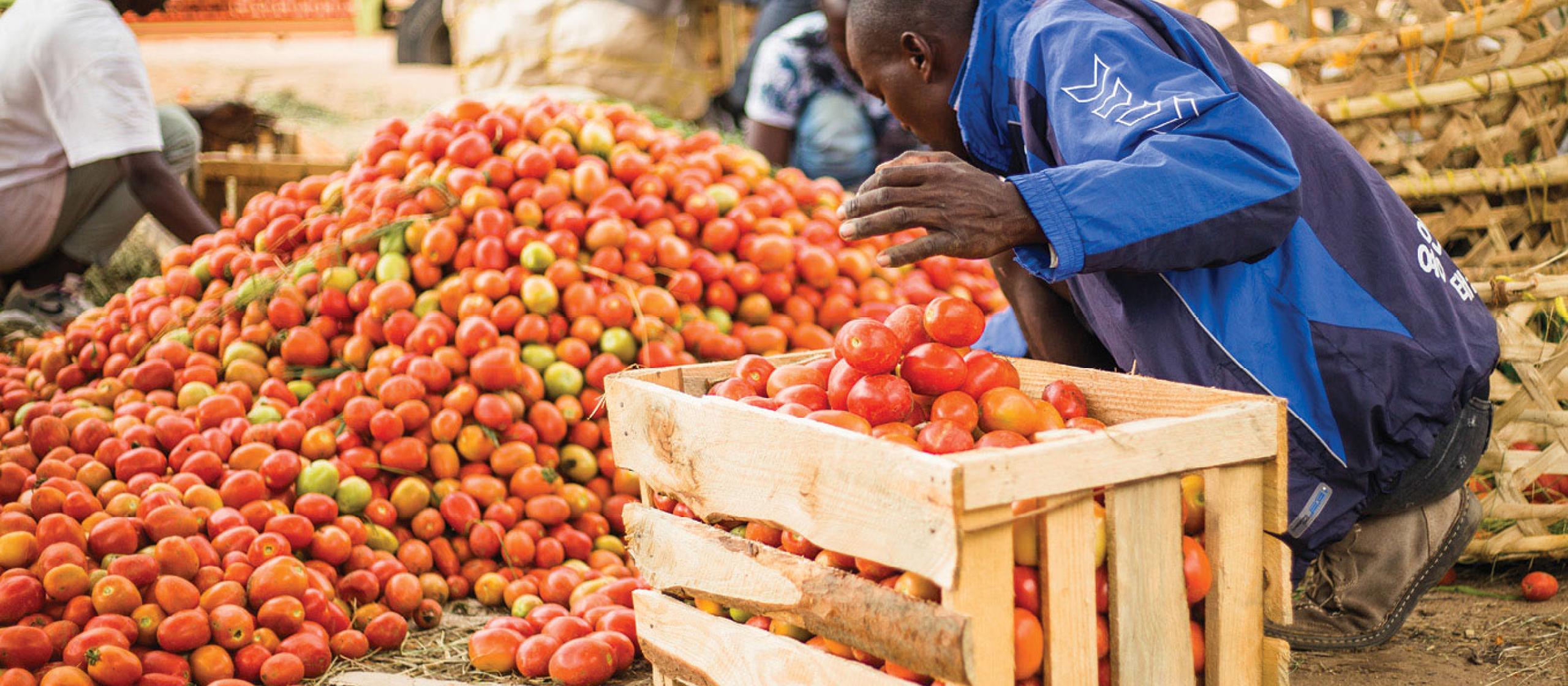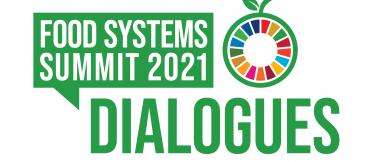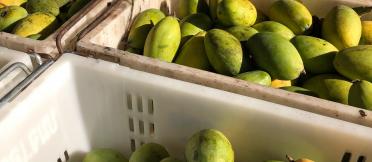- HomeHome
-
About ACIAR
- Our work
- Our people
-
Corporate information
- ACIAR Audit Committee
- Commission for International Agricultural Research
- Policy Advisory Council
- Agency reviews
- Executive remuneration disclosure
- Freedom of information (FOI)
- Gifts and benefits register
- Information publication scheme
- List of new agency files
- Contracts
- Legal services expenditure
- Privacy impact assessment register
- Commonwealth Child Safe Framework
- Benefits to Australia
- Careers
- 40 years of ACIAR
-
What we do
- Programs
- Cross-cutting areas
- Resources
- Where we work
-
Funding
- Research projects
- Fellowships
-
Scholarships
- John Allwright FellowshipScholarships to study in Australia for ACIAR partner country scientists to have Australian postgraduate qualifications
- ACIAR Pacific Agriculture Scholarships and Support and Climate Resilience Program
- Alumni Research Support Facility
- Publications
- News and Outreach
Date released
02 July 2021
The new A$3m Food Loss Research Program will support projects in Asia, Africa and the Pacific region.
ACIAR CEO Professor Andrew Campbell says food loss and waste are huge—and growing—issues globally.
‘The world needs to continually increase food production to feed the growing population,’ Professor Campbell says.
‘But if we didn’t lose or waste as much food, there wouldn’t be as much pressure to increase production. And pressure to increase production is pressure to increase water use, land use and nutrient use, as well as greenhouse gas emissions.’
Around one-third of food produced globally is either lost before it reaches the point of consumption or wasted after it reaches consumers. How this happens differs between countries.
Generally, in industrialised countries, food waste is the bigger problem. It occurs at the point of consumption, with food being thrown out from people’s kitchens, restaurants or supermarkets. In low- and middle-income countries, on the other hand, food loss is the challenge, occurring on farm and during processing, storage and transportation.
President of IDRC Dr Jean Lebel says reducing food loss is also an effective strategy to improve people’s lives and livelihoods.
‘It’s an area of science where if we make gains, we not only make gains in food loss but we boost returns to farmers. We improve nutrition and we increase incomes for families,’ says Dr Lebel.
He adds that while food loss is not a new issue, progress to address it has been insufficient and too slow.
The roots of the innovative Food Loss Research Program bode well for a new approach that engages partners in a collaborative way.
Project foundations
ACIAR and IDRC have invested in analysing and mapping the future of food, led by the XPRIZE team. XPRIZE is an approach to identifying faster and more effective ways to have a positive impact in the world by using competition. The resulting ‘Future of Food Impact Roadmap’ has identified some of the biggest challenges facing agriculture and food production systems today.
One challenge identified is our ability to manage food systems within environmental limits. Curtailing food loss and waste is highlighted as a major opportunity for reducing the environmental impacts of food production.
Dr Sarina Macfadyen, Principal Research Scientist at CSIRO, is coordinating the Food Loss Research Program.
‘After consultation with people working in the agri-food systems of developing countries, we could see the absence of useful information on food loss and waste in some of the low- and middle-income countries was potentially one factor constraining the implementation of solutions,’ Dr Macfadyen says.
‘Furthermore, changes in formal and informal food chains operating in these countries, the types of intermediaries involved and how consumers are accessing food is changing rapidly.
‘The Food Loss Research Program aims to identify and test opportunities for reducing food loss in Asia, Africa and the Pacific region.’
To commence the program, project ideas were invited as part of an ideas-generation process. It was open to researchers and research institutions in partner countries.
High-impact projects
It’s anticipated that initially four projects will be funded under the Food Loss Research Program, targeting fruits, vegetables and fish. Each will work to uncover and understand high-impact food loss issues along the supply chain and work with networks of stakeholders to address these.
Professor Campbell says these projects aim to increase the production of highly nutritious foods such as fruit, vegetables and animal proteins that are missing from many people’s diets.
‘ACIAR’s purpose is to help smallholder farmers, and if we can improve value chains so that less product is lost or wasted before it gets sold, that will help to improve the livelihoods and income for smallholders, as well as local food security,’ he says.
‘Helping farmers to reduce loss and waste is the other side of the coin from helping farmers to increase production.’
Dr Macfadyen agrees, saying: ‘You can’t really improve food security and poverty in developing countries by focusing just on research to increase production. By sustainably increasing production and reducing food loss and waste we have a much better chance of addressing food security and nutrition insecurity in communities and countries.’
A new focus
Professor Campbell says the Food Loss Research Program marks an ‘important evolution’ in looking at food from a systems perspective.
In some low- and middle-income countries in which ACIAR research teams operate, there is a general lack of post-harvest infrastructure for reducing food loss, despite many potential technology solutions.
‘Many of these innovations have never been adopted or implemented at a broad scale. However, the way these new projects have been developed and planned means there is a high likelihood that the teams will provide useful information for the development of locally-relevant solutions,’ says Dr Macfadyen.
She says rather than taking a technology from developed countries and trying to get it to work in other countries—which has been unsuccessful in the past—ACIAR, IDRC and their partners are assessing the food loss situation thoroughly, asking stakeholders for their ideas and constraints and trialling innovations that may be more appropriate for the target country.
‘Each project team involves two or more focal countries that are at different stages of development for the food chain under investigation so the transfer of interventions and an understanding of how change can be supported long-term may be more likely,’ says Dr Macfadyen.
Dr Lebel emphasises the importance of collaborating with a network of partners in the focus countries—including people from across the public and private sectors and researchers and non-researchers—to achieve this long-lasting impact.
‘Let’s embrace the complex challenge because out of complexity—and by bringing people together—we can come to relatively simple and actionable solutions,’ he says.
He adds that engaging with in-country partners means giving them power and that is the key to success.
‘We have to empower people. We tend to forget that in empowering there is a transfer of power. If you aren’t empowering others, it’s because you aren’t giving away your power,’ says Dr Lebel.
‘It’s not black magic. People need the resources, so let’s give them the resources. Learn from that and then translate it to reach others.
‘It’s profound. ACIAR and IDRC have always been true to this empowerment: giving responsibility to the people in the field.’
Importance of Australia-Canada cooperation
ACIAR and IDRC have worked together to invest in and support international agricultural research for development since 2013.
The Food Loss Research Program is their latest collaboration.
‘By working together, we have a wider reach and a bigger impact,’ says Professor Campbell.
Through the program both agencies also aim to support progress towards the Sustainable Development Goals (SDGs). In particular this includes Target 12.3 under SDG 12: Responsible production and consumption which aims to ‘halve per capita global food waste at the retail and consumer levels and reduce food losses along production and supply chains, including post-harvest losses’.
The nature of how the Food Loss Research Program will be conducted also aligns with SDG 17: Partnerships for the goals.
‘The SDGs will only be accomplished if we are looking at them globally. The year 2030 is tomorrow for us. It’s not only the date that is important, it’s the journey,’ says Dr Lebel.
‘Our partnership with ACIAR has been so brilliant that it leads me to believe our journey of collaboration with Australia is in its early days. We have plenty to still do together.’
The program was launched as part of a United Nations Food Systems Summit Dialogue on food loss co-hosted by ACIAR and IDRC. The Dialogue drew together research leaders from around the world to discuss the global problem of food loss and advance planning and cooperation to help address it.
ACIAR project: Food Loss Research Program
Key points
- ACIAR and Canada’s International Development Research Centre (IDRC) have launched a co-funded Food Loss Research Program.
- The program will target food loss in developing countries in Asia, Africa and the Pacific region.
- Reducing food loss and waste will help improve farm incomes and local food security while reducing pressure on water, land and nutrients, as well as greenhouse gas emissions.





